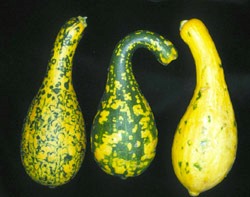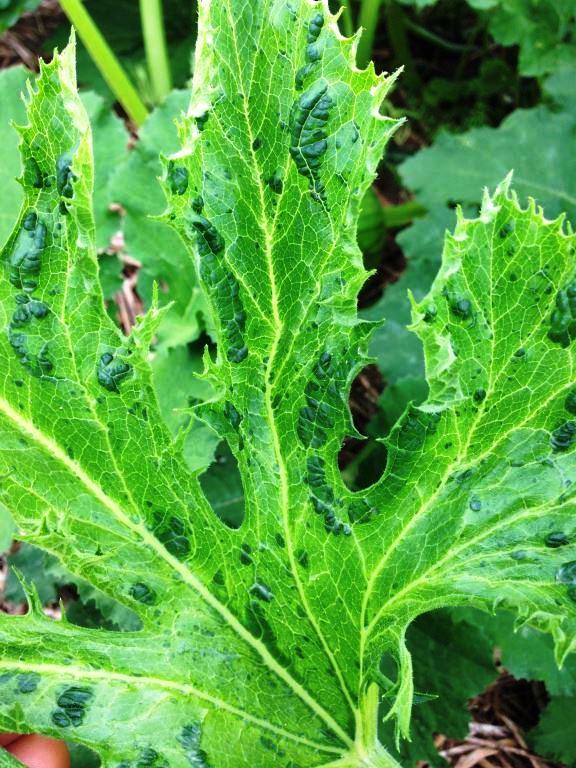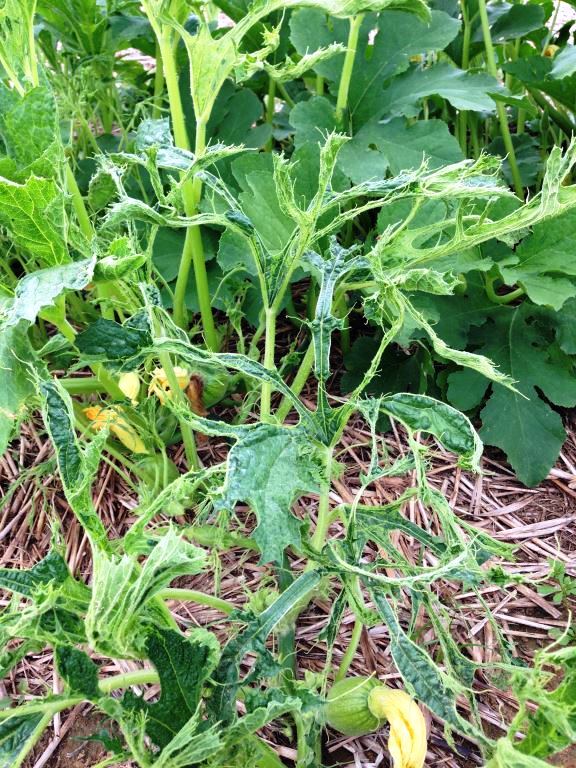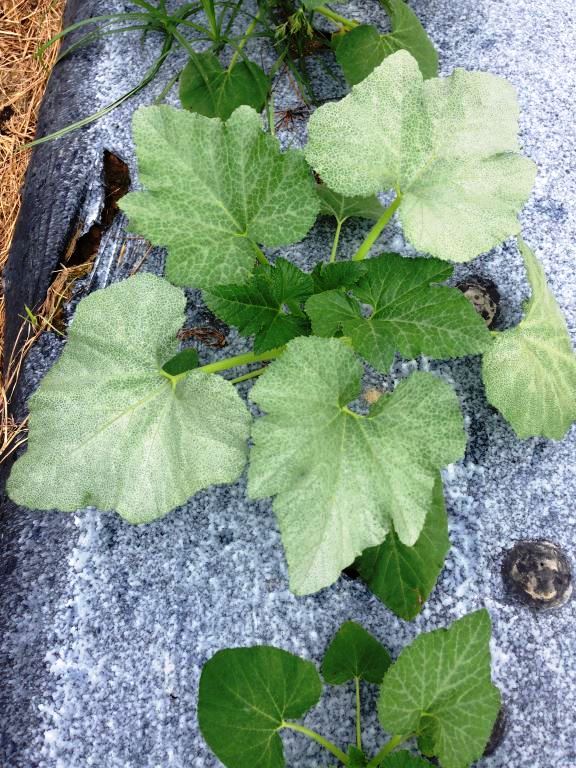
Figure 1. Fruit symptoms of virus disease on yellow squash. Photo courtesy www.freshfromflorida.com
While this might be a good thing if you’re growing zucchini, it’s not a good thing if you’re growing yellow squash. If this is the case, chances are you’ve got a virus disease in your squash. This is a very common problem in fall produced cucurbits, especially yellow squash, zucchini, and pumpkin. This problem alone limits production of these crops during the fall season. Green coloration on yellow squash, misshapen fruit, distorted leaves, and mottled coloration are some of the symptoms associated virus diseases in cucurbits (Figures 1, 2, 3).
Leaf symptoms often mimic phenoxy type herbicide (ex: 2,4-D) injury. The effected fruit are still edible but in most cases not marketable. These virus diseases are rarely seen during spring production.
There are three common viruses that are problematic for cucurbits in the panhandle, Papaya Ringspot Virus, Zucchini Yellow Mosaic Virus, and Watermelon Mosaic Virus 2. These viruses are all in the same family, Potyviridae, and are referred to as potyviruses. They are all transmitted by aphids, and plants exhibit similar symptoms when infected with them. Once infected, there are no curative measures and all fruit produced by these plants could be unmarketable.
Virus diseases have a wide range of symptoms but they should not be confused with silverleaf disorder (Figure 4). Silverleaf is brought on by whitefly feeding which causes a separation of the leaf tissue which gives the silver appearance.
There are several methods to manage these virus diseases in fall cucurbit production. Resistant varieties of yellow squash, zucchini, and cantaloupe are available that have resistance to two or three of the most common potyviruses. There are also varieties of yellow squash that are known as precocious yellow varieties that mask virus symptoms. These varieties have a yellow stem on the fruit compared to a standard green stem. There are no virus resistant varieties of watermelon or pumpkin available. Recommended varieties for Florida, along with other cucurbit production information can be found in this UF/IFAS publication: Chapter 3. Cucurbit Production. Another management tactic is the use of metalized plastic mulch (Figure 5). This mulch reflects much of the ultraviolet light from the sun, which disrupts the host seeking behavior of the aphids, which prevents virus transmission. Eventually the plants cover the mulch and reduce the reflective effect, but it does provide protection early in the season. Aphids transmit the virus very quickly, so simply managing the aphids is not an effective method of managing the viral diseases.
Another method of virus disease management is the use of stylet oil sprays. Stylet oil is highly refined oil that must be sprayed every three to four days, at very high pressure 300-600 psi. This coats the plants and prevents virus transmission, even though aphids may feed. Roguing out diseased plants (removing plants with undesirable characteristics) may reduce a source of inoculum, but this is often not feasible in commercial production.
If you have plants that you suspect may be infected with a plant virus, contact your local extension agent, to help with diagnosis. Additional resources can be found at the following links:
Florida Crop/Pest Management Profile: Squash
Virus Diseases of Cucurbits
Cucurbit Production
- NFREC Faculty Tribute to Arnie Forrester - February 11, 2022
- Tomato Varieties for 2022 - January 28, 2022
- Pumpkin Production in North Florida - July 30, 2021




